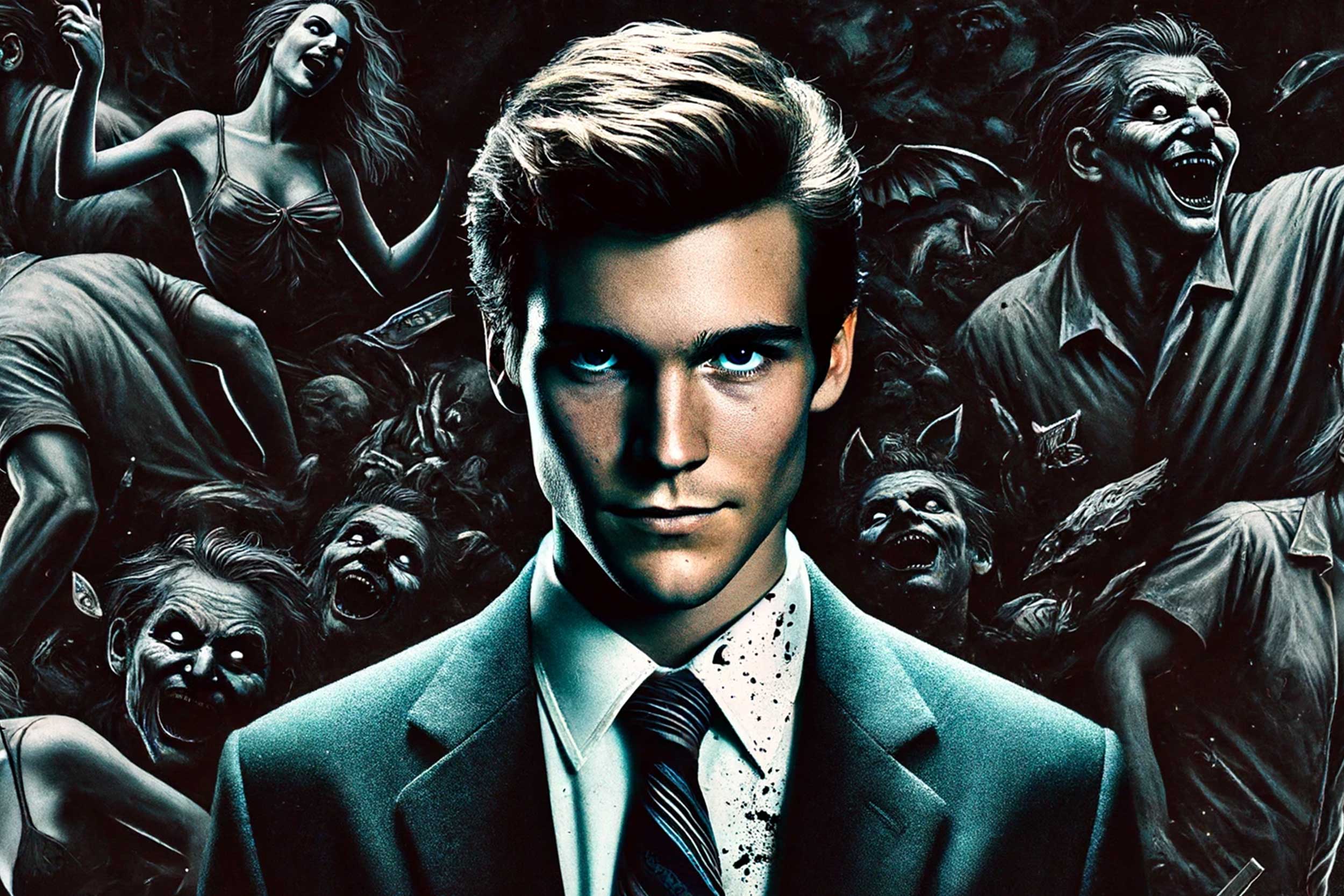Table of Contents
American Psycho by Bret Easton Ellis is a horror book that takes readers into the dark and twisted mind of Patrick Bateman, a wealthy young investment banker living in Manhattan during the Wall Street boom of the late 1980s. This American Psycho by Bret Easton Ellis review will explore the novel’s themes, characters, and the impact of its controversial content. The story, narrated by Bateman himself, paints a vivid picture of his dual life filled with the glamour of high society and unspeakable acts of violence. In this review, I aim to provide a comprehensive summary of American Psycho by Bret Easton Ellis while sharing my thoughts on its strengths and weaknesses.
What I Liked About American Psycho by Bret Easton Ellis
Engaging Narrative Style
One of the standout features of American Psycho is its engaging narrative style. Bateman’s stream of consciousness narration offers readers an unfiltered look into his disturbed psyche. The present tense narrative adds immediacy and intensity to the story, making it both compelling and unsettling. Additionally, Bateman occasionally breaks the fourth wall to directly address the reader, which adds a chilling intimacy to his character. These moments create a sense of unease as if Bateman is sharing his darkest secrets with us personally.
Satirical Elements
Bret Easton Ellis masterfully weaves satire into the fabric of American Psycho, using Bateman’s life to critique the culture of the 1980s. The novel’s portrayal of materialism, superficiality, and the emptiness of the Wall Street elite is sharp and thought provoking. Ellis exposes the absurdity of a society obsessed with appearance and wealth, highlighting the hollowness of Bateman’s world. Despite the horror, there are moments of dark humor that punctuate the narrative, balancing the graphic content with satirical wit. This blend of horror and satire makes American Psycho a complex and multifaceted read.
What I Disliked About American Psycho by Bret Easton Ellis
One of the most challenging aspects of American Psycho is its graphic violence. The detailed descriptions of Bateman’s violent acts can be overwhelming and distressing for many readers. While the violence serves to underscore Bateman’s deteriorating sanity and the horror of his actions, it sometimes feels excessive. The intensity and frequency of these scenes can overshadow the novel’s satirical message and thematic depth, making it difficult to fully appreciate the underlying critique of consumer culture.
Themes and Characters in American Psycho by Bret Easton Ellis
Identity and Perception
A central theme in American Psycho is the concept of identity and perception. Bateman is an unreliable narrator, and constantly mistaken identities among characters highlight the fluidity and uncertainty of reality in his world. Bateman’s fractured identity and his inability to distinguish between reality and hallucination add layers of tension to the story. His mental deterioration is portrayed with chilling clarity, making him a complex and fascinating character.
Critique of Consumer Culture
Ellis’s critique of consumer culture is a recurring theme throughout American Psycho. Bateman’s obsession with personal appearance and brand names underscores the emptiness of materialism. His detailed descriptions of his daily aesthetics regimen and the constant focus on status symbols reveal a society obsessed with surface level perfection. The novel’s setting and characters epitomize the excessive materialism of the 1980s, offering a scathing critique of a culture that values wealth and appearance above everything else.
Conclusion
To summarize this American Psycho by Bret Easton Ellis review, American Psycho is a horror book that masterfully combines a chilling narrative with a satirical critique of 1980s culture. Despite its graphic violence, the novel’s exploration of identity, sanity, and consumerism remains impactful. Bret Easton Ellis has created a thought provoking and controversial work that leaves a lasting impression. The book’s conclusion, marked by the sign “This is not an exit,” perfectly encapsulates the ongoing cycle of superficiality and emptiness that defines Bateman’s world.
In the end, American Psycho is a powerful and disturbing read that challenges readers to confront the darkest aspects of human nature and the society we live in. If you’re looking for a scary book that delves deep into the psyche of a troubled individual while offering a sharp critique of consumer culture, American Psycho by Bret Easton Ellis is a must read.






